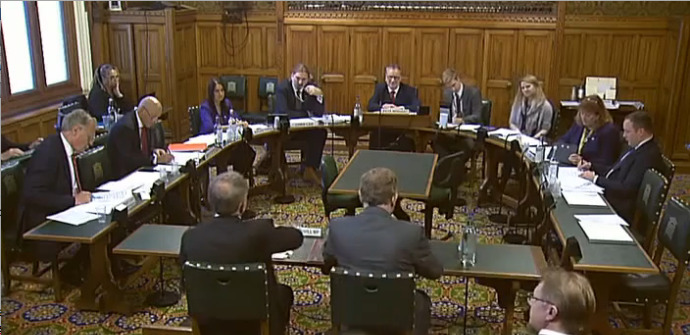
The Scottish Affairs Committee has become the latest source of criticism for the government over its renewable energy policy.
The government has been accused of “worrying complacency” over Scotland’s renewable energy sector after its response to a recent report avoided specific calls for an indication of support for renewable electricity generators and technologies.
The Scottish Affairs Committee (SAC) has published the UK government’s response to the renewable energy in Scotland report published in July.
Pete Wishart MP, chair of the committee, has expressed disappointment that the response from energy and intellectual property minister, Baroness Neville-Rolfe, failed to recognise the uncertainty felt in the renewable sector or provide meaningful support and reassurance.
SAC’s report made a series of recommendations to government, including an account of the impact of recent policy changes to the Scottish and wider UK renewables sectors and clarity over future policy.
In it’s final recommendation over Scotland’s involvement in the forming of the upcoming carbon plan in response to the Fifth Carbon Budget, SAC also called for a range of specific policy approaches on future support levels and emerging technologies.
Instead, the minister’s response includes a reference to a government expectation of “significant further deployment” in Scotland due to the existing pipeline of projects. It ignores requests for clarity on future subsidy support, suggesting that the current level of projects due for delivery is enough to meet the UK’s renewable energy targets.
It contends that committing any further support would “add more costs to consumer bills”.
Wishart commented: “The government’s response to our report shows a worrying complacency. They have not responded to the voices of those in the industry who have told us that they are facing an uncertain future.
“We are told that everything is fine, but where are the reassurances to the renewable sector that the support will be there to encourage the development of new plants and new technologies? Where is the investment in infrastructure? They have provided us with a tacit admission that they think onshore wind has reached its limit, let us hope that is not their view of the industry as a whole.”
The response document from the Department for Business, Energy and Industrial Strategy also cites the government’s projected overspend on the Levy Control Framework as a cause for its actions to reduce spending.
“These costs are ultimately borne by all consumers and there is an onus on Government to strike the right balance between supporting new technologies and being tough on subsides to keep bills as low as possible,” it states.
However, it is now known that this overspend was a result of poor management of the LCF by government which, according to a recent report from the National Audit Office, failed in several areas of its administration.
The government’s response to the SAC report has continued to support the position that it will not prescribe a specific plan to management of the LCF. However, it has said that the Scottish government will be consulted on the design of new and existing incentives for renewable electricity generation under the requirements of the Scotland Act.
The government has faced mounting criticism over energy policy since last year’s general election, particularly in the period since the reformation of Whitehall departments under Theresa May.
The now defunct Energy and Climate Change select committee used its final report to outline several failings in government policy around several areas scrutinised by previous reports.
It also dubbed government engagement in some of its work “wholly inadequate” and has urged the new Business, Energy and Industrial Strategy committee to press government for greater involvement.

